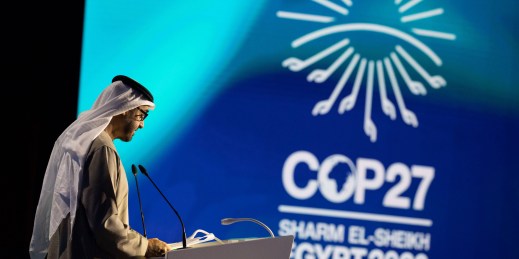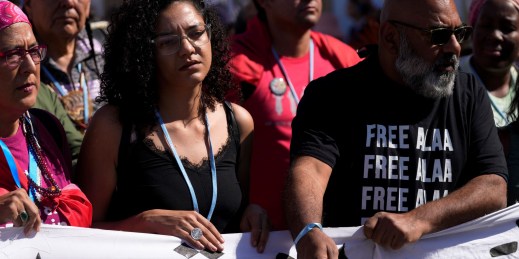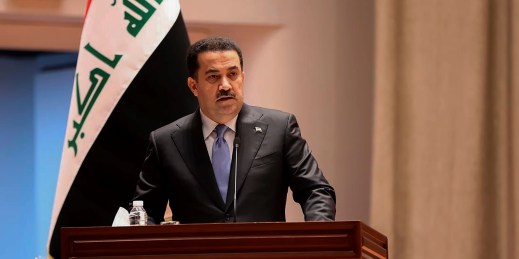
As the United Nations COP27 Climate Change Conference closed Sunday, Egypt, this year’s host, hailed the agreements brokered there as a success. But there continues to be a gap between the climate-change commitments most countries in the Middle East and North Africa have formally expressed and their actual behavior.



